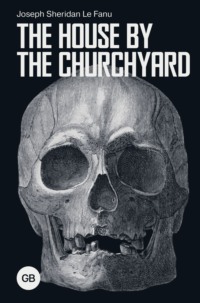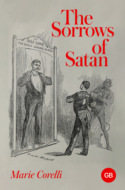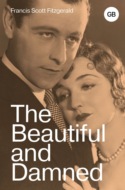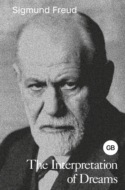Kitabı oku: «The House by the Churchyard / Дом у кладбища», sayfa 4
'Oh – ho – ho!' laughed poor little Puddock, with a most gratified derisiveness, for he cherished in secret a great admiration for Devereux.
And so they talked stage-talk. Puddock lithping away, grand and garrulous; O'Flaherty, the illiterate, blundering in with sincere applause; and Devereux sipping his claret and dropping a quiet saucy word now and again.
'I shall never forget Mrs. Cibber's countenance in that last scene – you know – in the “Orphan” – Monimiayou know, Devereux.' And the table being by this time in high chat, and the chairs a little irregular, Puddock slipped off his, and addressing himself to Devereux and O'Flaherty – just to give them a notion of Mrs. Cibber – began, with a countenance the most wobegone, and in a piping falsetto —
'When I am laid low, i' the grave, and quite forgotten.'
Monimia dies at the end of the speech – as the reader may not be aware; but when Puddock came to the line —
'When I am dead, as presently I shall be,'
all Mrs. Cibber's best points being still to come, the little lieutenant's heel caught in the edge of the carpet, as he sailed with an imaginary hoop on grandly backward, and in spite of a surprising flick-flack cut in the attempt to recover his equipoise, down came the 'orphan,' together with a table-load of spoons and plates, with a crash that stopt all conversation.
Lord Castlemallard waked up, with a snort and a 'hollo, gentlemen!'
'It's only poor dear Monimia, general,' said Devereux with a melancholy bow, in reply to a fiery and startled stare darted to the point by that gallant officer.
'Hey – eh?' said his lordship, brightening up, and gazing glassily round with a wan smile; and I fancy he thought a lady had somehow introduced herself during his nap, and was pleased, for he admired the sex.
'If there's any recitation going on, I think it had better be for the benefit of the company,' said the general, a little surly, and looking full upon the plump Monimia, who was arranging his frill and hair, and getting a little awkwardly into his place.
'And I think 'twould be no harm, Lieutenant Puddock, my dear,' says Father Roach, testily, for he had been himself frightened by the crash, 'if you'd die a little aisier the next time.'
Puddock began to apologise.
'Never mind,' said the general, recovering, 'let's fill our glasses – my Lord Castlemallard, they tell me this claret is a pretty wine.'
'A very pretty wine,' said my lord.
'And suppose, my lord, we ask these gentlemen to give us a song? I say, gentlemen, there are fine voices among you. Will some gentleman oblige the company with a song?'
'Mr. Loftus sings a very fine song, I'm told,' said Captain Cluffe, with a wink at Father Roach.
'Ay,' cried Roach, backing up the joke (a good old one, and not yet quite off the hooks), 'Mr. Loftus sings, I'll take my davy – I've heard him!'
Loftus was shy, simple, and grotesque, and looked like a man who could not sing a note. So when he opened his eyes, looked round, and blushed, there was a general knocking of glasses, and a very flattering clamour for Mr. Loftus's song.
But when silence came, to the surprise of the company he submitted, though with manifest trepidation, and told them that he would sing as the company desired. It was a song from a good old writer upon fasting in Lent, and was, in fact, a reproof to all hypocrisy. Hereupon there was a great ringing of glasses and a jolly round of laughter rose up in the cheer that welcomed the announcement. Father Roach looked queer and disconcerted, and shot a look of suspicion at Devereux, for poor Dan Loftus had, in truth, hit that divine strait in a very tender spot.
The fact is, Father Roach was, as Irish priests were sometimes then, a bit of a sportsman. He and Toole used occasionally to make mysterious excursions to the Dublin mountains. He had a couple of mighty good dogs, which he lent freely, being a good-natured fellow. He liked good living and jolly young fellows, and was popular among the officers, who used to pop in freely enough at his reverence's green hall-door whenever they wanted a loan of his dogs, or to take counsel of the ghostly father (whose opinion was valued more highly even than Toole's) upon the case of a sick dog or a lame nag.
Well, one morning – only a few weeks before – Devereux and Toole together had looked in on some such business upon his reverence – a little suddenly – and found him eating a hare! – by all the gods, itwas – hare-pie in the middle of Lent!
It was at breakfast. His dinner was the meal of an anchorite, and who would have guessed that these confounded sparks would have bounced into his little refectory at that hour of the morning? There was no room for equivocation; he had been caught in the very act of criminal conversation with the hare-pie. He rose with a spring, like a Jack-in-a-box, as they entered, and knife and fork in hand, and with shining chops, stared at them with an angry, bothered, and alarmed countenance, which increased their laughter. It was a good while before he obtained a hearing, such was the hilarity, so sustained the fire of ironical compliments, enquiries, and pleasantries, and the general uproar.
When he did, with hand uplifted, after the manner of a prisoner arraigned for murder, he pleaded 'a dispensation.' I suppose it was true, for he backed the allegation with several most religious oaths and imprecations, and explained how men were not always quite so strong as they looked; that he might, if he liked it, by permission of his bishop, eat meat at every meal in the day, and every day in the week; that his not doing so was a voluntary abstinence – not conscientious, only expedient – to prevent the 'unreasonable remarks' of his parishioners (a roar of laughter); that he was, perhaps, rightly served for not having publicly availed himself of his bishop's dispensation (renewed peals of merriment). By this foolish delicacy (more of that detestable horse-laughter), he had got himself into a false position; and so on, till thead misericordiam peroration addressed to 'Captain Devereux, dear,' and 'Toole, my honey.' Well, they quizzed him unmercifully; they sat down and eat all that was left of the hare-pie, under his wistful ogle. They made him narrate minutely every circumstance connected with the smuggling of the game, and the illicit distillation for the mess. They never passed so pleasant a morning. Of course he bound them over to eternal secrecy, and of course, as in all similar cases, the vow was religiously observed; nothing was ever heard of it at mess – oh, no – and Toole never gave a dramatic representation of the occurrence, heightened and embellished with all the little doctor's genius for farce.
There certainly was a monologue to which he frequently afterwards treated the Aldermen of Skinner's Alley, and other convivial bodies, at supper, the doctor's gestures were made with knife and fork in hand, and it was spoken in a rich brogue and tones sometimes of thrilling pathos, anon of sharp and vehement indignation, and again of childlike endearment, amidst pounding and jingling of glasses, and screams of laughter from the company. Indeed the lord mayor, a fat slob of a fellow, though not much given to undue merriment, laughed his ribs into such a state of breathless torture, that he implored of Toole, with a wave of his hand – he could not speak – to give him breathing time, which that voluble performer disregarding, his lordship had to rise twice, and get to the window, or, as he afterwards said, he should have lost his life; and when the performance was ended, his fat cheeks were covered with tears, his mouth hung down, his head wagged slowly from side to side, and with short gasping 'oohs,' and 'oohs,' his hands pressed to his pudgy ribs, he looked so pale and breathless, that although they said nothing, several of his comrades stared hard at him, and thought him in rather a queer state.
Shortly after this little surprise, I suppose by way of ratifying the secret treaty of silence, Father Roach gave the officers and Toole a grand Lent dinner of fish, with no less than nineteen differentplats, baked, boiled, stewed, in fact, a very splendid feast; and Puddock talked of some of those dishes more than twenty years afterwards.
Chapter VI
In Which the Minstrelsy Proceeds
No wonder, then, if Father Roach, when Loftus, in the innocence of his heart, announced his song and its theme, was thoroughly uneasy, and would have given a good deal that he had not helped that simple youth into his difficulty. But things must now take their course. So amid a decorous silence, Dan Loftus lifted up his voice, and sang. That voice was a high small pipe, with a very nervous quaver in it. He leaned back in his chair, and little more than the whites of his upturned eyes were visible; and beating time upon the table with one hand, claw-wise, and with two or three queer, little thrills and roulades, which re-appeared with great precision in each verse, he delivered himself thus, in what I suspect was an old psalm tune: —
'Now Lent is come, let us refrain
From carnal creatures, quick or slain;
Let's fast and macerate the flesh,
Impound and keep it in distress.'
Here there came a wonderful, unspellable choking sound, partly through the mouth, partly through the nose, from several of the officers; and old General Chattesworth, who was frowning hard upon his dessert-plate, cried, 'Order, gentlemen,' in a stern, but very tremulous undertone. Lord Castlemallard, leaning upon his elbow, was staring with a grave and dreamy curiosity at the songster, and neither he nor his lordship heard the interruption, and on went the pleasant ditty; and as the musician regularly repeated the last two lines like a clerk in a piece of psalmody, the young wags, to save themselves from bursting outright, joined in the chorus, while verse after verse waxed more uproarious and hilarious, and gave a singular relief to Loftus's thin, high, quavering solo: —
(Loftus, solo.)
'But to forbear from flesh, fowl, fish,
And eat potatoes in a dish,
Done o'er with amber, or a mess
Of ringos in a Spanish dress
(Chorus of Officers.)
'Done o'er with amber, or a mess
Of ringos in a Spanish dress.'
"Tis a good song,' murmured Doctor Walsingham in Lord Castlemallard's ear – 'I know the verses well – the ingenious and pious Howel penned them in the reign of King James the First.'
'Ha! thank you, Sir,' said his lordship.
(Loftus, solo.)
'Or to refrain from all high dishes,
But feed our thoughts with wanton wishes,
Making the soul, like a light wench,
Wear patches of concupiscence.
(Chorus of Officers.)
'Making the soul, like a light wench,
Wear patches of concupiscence
(Loftus, solo.)
'This is not to keep Lent aright,
But play the juggling hypocrite;
For we must starve the inward man,
And feed the outward too on bran.
(Chorus of Officers.)
'For we must starve the inward man,
And feed the outward too on bran.'
I believe no song was ever received with heartier bursts of laughter and applause. Puddock indeed was grave, being a good deal interested in the dishes sung by the poet. So, for the sake of its moral point, was Dr. Walsingham, who, with brows gathered together judicially, kept time with head and hand, murmuring 'true, true –good, Sir, good,' from time to time, as the sentiment liked him.
But honest Father Roach was confoundedly put out by the performance. He sat with his blue double chin buried in his breast, his mouth pursed up tightly, a red scowl all over his face, his quick, little, angry, suspicious eyes peeping cornerwise, now this way, now that, not knowing how to take what seemed to him like a deliberate conspiracy to roast him for the entertainment of the company, who followed the concluding verse with a universal roaring chorus, which went off into a storm of laughter, in which Father Roach made an absurd attempt to join. But it was only a gunpowder glare, swallowed in an instant in darkness, and down came the black portcullis of his scowl with a chop, while clearing his voice, and directing his red face and vicious little eyes straight on simple Dan Loftus he said, rising very erect and square from an unusually ceremonious bow —
'I don't know, Mr. Loftus, exactly what you mean by a “ring-goat in a Spanish dress”' (the priest had just smuggled over a wonderful bit of ecclesiastical toggery from Salamanca): 'and – a – person wearing patches, you said of – of – patches of concupiscence, I think.' (Father Roach's housekeeper unfortunately wore patches, though, it is right to add, she was altogether virtuous, and by no means young); 'but I'm bound to suppose, by the amusement our friends seem to derive from it, Sir, that a ring-goat, whatever it means, is a good joke, as well as a good-natured one.'
'But, by your leave, Sir,' emphatically interposed Puddock, on whose ear the ecclesiastic's blunder grated like a discord, 'Mr. Loftus sang nothing about a goat, though kid is not a bad thing: he said, “ringos,” meaning, I conclude, eringoeous, a delicious preserve or confection. Have you never eaten them, either preserved or candied – a – why I – a – I happen to have a receipt – a – and if you permit me, Sir – a capital receipt. When I was a boy, I made some once at home, Sir; and, by Jupiter, my brother, Sam, eat of them till he was quite sick – I remember,so sick, by Jupiter, my poor mother and old Dorcas had to sit up all night with him – a – and – I was going to say, if you will allow me, Sir, I shall be very happy to send the receipt to your housekeeper.'
'You'll not like it, Sir,' said Devereux, mischievously: 'but there really is a capital one – quite of another kind – a lenten dish – fish, you know, Puddock – the one you described yesterday; but Mr. Loftus has, I think, a still better way.'
'Have you, Sir?' asked Puddock, who had a keen appetite for knowledge.
'I don't know, Captain Puddock,' murmured Loftus, bewildered.
'What is it?' remarked his reverence, shortly.
'A roast roach,' answered Puddock, looking quite innocently in that theologian's fiery face.
'Thank you,' said Father Roach, with an expression of countenance which polite little Puddock did not in the least understand.
'And howdo you roast him – we know Loftus's receipt,' persisted Devereux, with remarkable cruelty.
'Just like a lump,' said Puddock, briskly.
'And how is that?' enquired Devereux.
'Flay the lump – splat him – divide him,' answered Puddock, with great volubility; 'and cut each side into two pieces; season with salt, pepper, and nutmeg, and baste with clarified butter; dish him with slices of oranges, barberries, grapes, gooseberries, and butter; and you will find that he eats deliriously either with farced pain or gammon pain.'
This rhapsody, delivered with the rapidity and emphasis of Puddock's earnest lisp, was accompanied with very general tokens of merriment from the company, and the priest, who half suspected him of having invented it, was on the point of falling foul of him, when Lord Castlemallard rose to take leave, and the general forthwith vacated the chair, and so the party broke up, fell into groups, and the greater part sauntered off to the Phœnix, where, in the club-room, they, with less restraint, and some new recruits, carried on the pleasures of the evening, which pleasures, as will sometimes happen, ended in something rather serious.
Chapter VII
Showing How Two Gentlemen May Misunderstand One Another, Without Enabling the Company To Understand Their Quarrel
Loftus had by this time climbed to the savage lair of his garret, overstrewn with tattered papers and books; and Father Roach, in the sanctuary of his little parlour, was growling over the bones of a devilled-turkey, and about to soothe his fretted soul in a generous libation of hot whiskey punch. Indeed, he was of an appeasable nature, and on the whole a very good fellow.
Dr. Toole, whom the young fellows found along with Nutter over the draught-board in the club-room, forsook his game to devour the story of Loftus's Lenten Hymn, and poor Father Roach's penance, rubbed his hands, and slapped his thigh, and crowed and shouted with ecstasy. O'Flaherty, who called for punch, and was unfortunately prone to grow melancholy and pugnacious over his liquor, was now in a saturnine vein of sentiment, discoursing of the charms of his peerless mistress, the Lady Magnolia Macnamara – for he was not one of those maudlin shepherds, who pipe their loves in lonely glens and other sequestered places, but rather loved to exhibit his bare scars, and roar his tender torments for the edification of the market-place.
While he was descanting on the attributes of that bewitching 'crature,' Puddock, not two yards off, was describing, with scarcely less unction, the perfections of 'pig roast with the hair on:' and the two made a medley like 'The Roast Beef of Old England,' and 'The Last Rose of Summer,' arranged in alternate stanzas. O'Flaherty suddenly stopped short, and said a little sternly to Lieutenant Puddock —
'Does it very much signify, Sir (or as O'Flaherty pronounced it “Sorr,”) whether the animal has hair upon it or not?'
'Every thing, Thir, in thith particular retheipt,' answered Puddock, a little loftily.
'But,' said Nutter, who, though no great talker, would make an effort to prevent a quarrel, and at the same time winking to Puddock in token that O'Flaherty was just a little 'hearty,' and so to let him alone; 'what signifies pigs' hair, compared with human tresses?'
'Compared withhuman tresses?' interrupted O'Flaherty, with stern deliberation, and fixing his eyes steadily and rather unpleasantly upon Nutter (I think he saw that wink and perhaps did not understand its import.)
'Ay, Sir, and Mrs. Magnolia Macnamara has as rich a head of hair as you could wish to see,' says Nutter, thinking he was drawing him off very cleverly.
'AsI could wish to see?' repeated O'Flaherty grimly.
'Asyou could desire to see, Sir,' reiterated Nutter, firmly, for he was not easily put down; and they looked for several seconds in silence a little menacingly, though puzzled, at one another.
But O'Flaherty, after a short pause, seemed to forget Nutter, and returned to his celestial theme.
'Be the powers, Sir, that young leedy has the most beautiful dimple in her chin I ever set eyes on!'
'Have you ever put a marrow fat pea in it, Sir?' enquired Devereux, simply, with all the beautiful rashness of youth.
'No, Sorr,' replied O'Flaherty, in a deep tone, and with a very dangerous glare; 'and I'd like to see the man who, in my presence, id preshum to teeke that libertee.'
'What a glorious name Magnolia is!' interposed little Toole in great haste; for it was a practice among these worthies to avert quarrels – very serious affairs in these jolly days – by making timely little diversions, and it is wonderful, at a critical moment, what may be done by suddenly presenting a trifle; a pin's point, sometimes – at least, a marvellously small one – will draw off innocuously, the accumulating electricity of a pair of bloated scowling thunder-clouds.
'It was her noble godmother, when the family resided at Castlemara, in the county of Roscommon, the Lady Carrick-o'-Gunniol, who conferred it,' said O'Flaherty, grandly, 'upon her god-daughter, as who had a better right – I say,who had a better right?' and he smote his hand upon the table, and looked round inviting contradiction. 'My godmothers, in my baptism – that's catechism – and all the town of Chapelizod won't put that down – the Holy Church Catechism – while Hyacinth O'Flaherty, of Coolnaquirk, Lieutenant Fireworker, wears a sword.'
'Nobly said, lieutenant!' exclaimed Toole, with a sly wink over his shoulder.
'And what about that leedy's neeme, Sir?' demanded the enamoured fireworker.
'By Jove, Sir, it is quite true, Lady Carrick-o'-Gunniolwas her godmother:' and Toole ran off into the story of how that relationship was brought about; narrating it, however, with great caution and mildness, extracting all the satire, and giving it quite a dignified and creditable character, for the Lieutenant Fireworker smelt so confoundedly of powder that the little doctor, though he never flinched when occasion demanded, did not care to give him an open. Those who had heard the same story from the mischievous merry little doctor before, were I dare say, amused at the grand and complimentary turn he gave it now.
The fact was, that poor Magnolia's name came to her in no very gracious way. Young Lady Carrick-o'-Gunniol was a bit of a wag, and was planting a magnolia – one of the first of those botanical rarities seen in Ireland – when good-natured, vapouring, vulgar Mrs. Macnamara's note, who wished to secure a peeress for her daughter's spiritual guardian, arrived. Her ladyship pencilled on the back of the note, 'Pray call the dear babe Magnolia,' and forthwith forgot all about it. But Madam Macnamara was charmed, and the autograph remained afterwards for two generations among the archives of the family; and, with great smiles and much complacency, she told Lord Carrick-o'-Gunniol all about it, just outside the grand jury-room, where she met him during the assize week; and, being a man of a weak and considerate nature, rather kind, and very courteous – although his smile was very near exploding into a laugh, as he gave the good lady snuff out of his own box – he was yet very much concerned and vexed, and asked his lady, when he went home, how she could have induced old Mrs. Macnamara to give that absurd name to her poor infant; whereat her ladyship, who had not thought of it since, was highly diverted; and being assured that the babe was actually christened, and past recovery Magnolia Macnamara, laughed very merrily, kissed her lord, who was shaking his head gravely, and then popped her hood on, kissed him again, and, laughing still, ran out to look at her magnolia, which, by way of reprisal, he henceforth, notwithstanding her entreaties, always called her 'Macnamara;' until, to her infinite delight, he came out with it, as it sometimes happens, at a wrong time, and asked old Mac – a large, mild man – then extant, Madame herself, nurse, infant Magnolia, and all, who had arrived at the castle, to walk out and see Lady Carrick-o'-Gunniol's 'Macnamara,' and perceived not the slip, such is the force of habit, though the family stared, and Lady C. laughed in an uncalled-for-way, at a sudden recollection of a tumble she once had, when a child, over a flower-bed; and broke out repeatedly, to my lord's chagrin and bewilderment, as they walked towards the exotic.
When Toole ended his little family anecdote, which, you may be sure, he took care to render as palatable to Magnolia's knight as possible, by not very scrupulous excisions and interpolations he wound all up, without allowing an instant for criticism or question, by saying briskly, though incoherently.
'And so, what do you say, lieutenant, to a Welsh rabbit for supper?'
The lieutenant nodded a stolid assent.
'Willyou have one, Nutter?' cried Toole.
'No,' said Nutter.
'And why not?' says Toole.
'Why, I believe Tom Rooke's song in praise of oysters,' answered Nutter, 'especially the verse —
'”The youth will ne'er live to scratch a gray head, On a supper who goes of Welsh rabbit to bed.”'
How came it to pass that Nutter hardly opened his lips this evening – on which, as the men who knew him longest all remarked, he was unprecedentedly talkative – without instantaneously becoming the mark at which O'Flaherty directed his fiercest and most suspicious scowls? And now that I know the allusion which the pugnacious lieutenant apprehended, I cannot but admire the fatality with which, without the smallest design, a very serious misunderstanding was brought about.
'As toyouths living to scratch gray heads or not, Sir,' said the young officer, in most menacing tones; 'I don't see what concern persons of your age can have in that. But I'll take leave to tell you, Sir, that a gentleman, whether he be a «youth» as you say, or aged, as you are, who endayvours to make himself diverting at the expense of others, runs a murdhering good risk, Sir, of getting himself scratched where he'll like it least.'
Little Nutter, though grave and generally taciturn, had a spirit of his own, and no notion whatever of knocking under to a bully. It is true, he had not the faintest notion why he was singled out for the young gentleman's impertinence; but neither did he mean to enquire. His mahogany features darkened for a moment to logwood, and his eyes showed their whites fiercely.
'We are not accustomed, Sir, in this part of the world, to your Connaught notions of politeness; we meet here for social – a – a – sociality, Sir; and the long and the short of it is, young gentleman, if you don't change your key, you'll find two can play at that game – and – and, I tell you, Sir, there will be wigs on the green, Sir.'
Here several voices interposed.
'silence, gentlemen, and let me speak, or I'll assault him,' bellowed O'Flaherty, who, to do him justice, at this moment looked capable of anything. 'I believe, Sir,' he continued, addressing Nutter, who confronted him like a little game-cock, 'it is not usual for one gentleman who renders himself offensive to another to oblige him to proceed to the length of manually malthrating his person.'
'Hey! eh?' said Nutter, drawing his mouth tight on one side with an ugly expression, and clenching his hands in his breeches pockets.
'Manually malthrating his person, Sir,' repeated O'Flaherty, 'by striking, kicking, or whipping any part or mimber of his body; or offering a milder assault, such as a pull by the chin, or a finger-tap upon the nose. It is usual, Sir, for the purpose of avoiding ungentlemanlike noise, inconvenience, and confusion, that one gentleman should request of another to suppose himself affronted in the manner, whatever it may be, most intolerable to his feelings, which request I now, Sir, teeke the libertee of preferring to you; and when you have engaged the services of a friend, I trust that Lieutenant Puddock, who lodges in the same house with me, will, in consideration of my being an officer of the same honourable corps, a sthranger in this part of the counthry, and, above all, a gentleman who can show paydagree like himself [here a low bow to Puddock, who returned it]; that Lieutenant Puddock will be so feelin' and so kind as to receive him on my behalf, and acting asmy friend to manage all the particulars for settling, as easily as may be, this most unprovoked affair.'
With which words he made another bow, and a pause of enquiry directed to Puddock, who lisped with dignity —
'sir, the duty is, for many reasons, painful; but I–I can't refuse, Sir, and I accept the trust.'
So O'Flaherty shook his hand, with another bow; bowed silently and loftily round the room, and disappeared, and a general buzz and a clack of tongues arose.
'Mr. Nutter – a – I hope things may be settled pleasantly,' said Puddock, looking as tall and weighty as he could; 'at present I – a – that is, at the moment, I – a – don't quite see – [the fact is, he had not a notion what the deuce it was all about] – but your friend will find me – your friend – a – at my lodgings up to one o'clock to-night, if necessary.'
And so Puddock's bow. For the moment an affair of this sort presented itself, all concerned therein became reserved and official, and the representatives merely of a ceremonious etiquette and a minutely-regulated ordeal of battle. So, as I said, Puddock bowed grandly and sublimely to Nutter, and then magnificently to the company, and made his exit.
There was a sort of a stun and a lull for several seconds. Something very decisive and serious had occurred. One or two countenances wore that stern and mysterious smile, which implies no hilarity, but a kind of reaction in presence of the astounding and the slightly horrible. There was a silence; the gentlemen kept their attitudes too, for some moments, and all eyes were directed toward the door. Then some turned to Charles Nutter, and then the momentary spell dissolved itself.
Ücretsiz ön izlemeyi tamamladınız.








